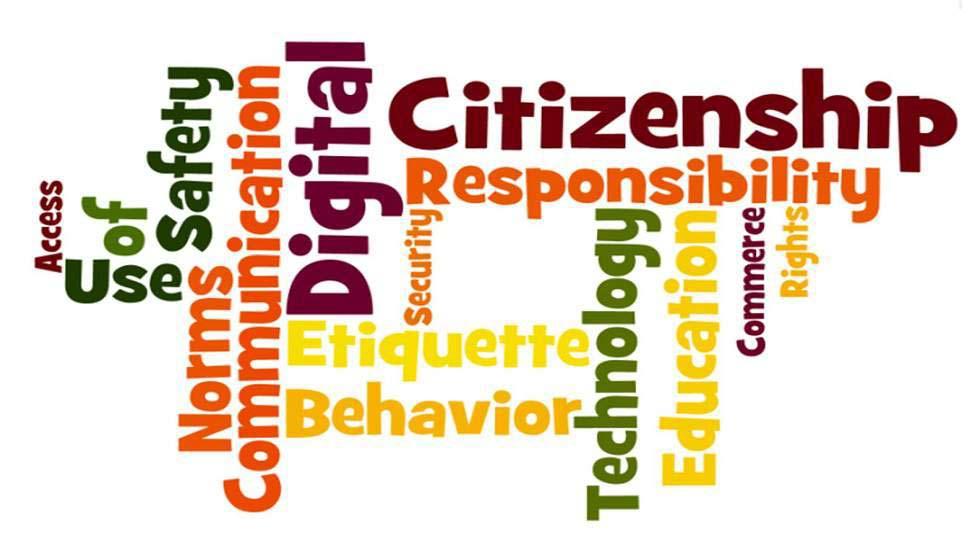Digital citizenship is a lot talked about nowadays. Teachers and students are now into a digital world that is not like before anymore. They have free access of information and can easily communicate with other students and teachers using online and social media platforms.
Why Teach Digital Citizenship?
Now a lot of teachers say that they want to stay away from that kind of stuff. But the reality is for prepare student for the 21 century, they have to be able to teach digital citizenship skills. We are going to take a look on the concept of digital citizenship in detail.
Digital Communication
Digital Citizenship can be break down into three categories.
- Etiquette: Digital etiquettes not only involve when and how you post, but when to appropriate to use digital technology.
- Literacy: Digital literacy is being able to look at the websites and evaluate and see their credibility as well as to inform properly.
- Communication: In digital Citizenship, communication is the ability to talk globally and instantly using blogs, and various social media platforms.
Related
If you wish to adopt the Digital Citizenship and Internet Maturity curriculum in your school, visit the website to know more.
Think Before You Post; Ask to Yourself
- Would you say this to someone?
- Who is going to see this?
- Am I mentioning someone else?
- Would they mind I posted this?
- Would I want this said about me?
- Is it a fact or opinion?
- Is the fact truthful?
Digital Literacy
- Knowing Quality vs Quantity
- Evaluating websites
-
Tell your students to go for quality over quantity and teach them how to evaluate websites. And by teaching them both, you can help them in finding credible websites.
Finding Credible website
Digital Etiquette
Posting Appropriately
- Post student work
- Class/school events
- Do not tag students
- Put twitter feed on the website
- Create a positive discourse with students, let them reach out and ask questions.
Citing Sources
One of the website where you find citing sources is Easy Bib. It can help you in:
- Easy Cite Sources
- Research Credible Materials
- Quickly Export or Save Bibliographies
Citeligher is another website that provides best citing sources. It can help you:
- Cite Web resources by highlighting
- Organize research
- Comment and share research
- Executing functioning skills
-
Appropriate time to use technology
-
Teacher using mobile phones for personal purpose at the time of talking or teaching to the student is an example of inappropriate time of using technology.
-
Personal Vs Professional Account
Your social media profile is an extension of who you are. Instead of spending time carefully hiding personal things with the privacy settings, just post responsibly!
-
Modeling as a Teacher/School
Teachers are nowadays using blogs to teach their students. Digital Literacy –Web 2.0 (Blog) is an awesome example of it; do visit the blog it.
Blogs gives a place to students to create content and become better content creator in near future. Creating blog content engages students meanwhile enhance their knowledge base.
Kidblog.com is an educational blog website that helps to create content perfectly. Apart from this there is plenty of education website or wordpress or blogger to make classroom blog.
Kids are Creators of Content
- Student blogs/wikis
- Digital stories
- Prepares them for content creation in 21 century workplace
-
Finding Web Site/Content
A lot of time we do research over the Internet, looking at the end of the website URL will help you. Anyone can make a dot (.) com or dot net website but a dot edu websiteis going to be from school. So at the time of doing educational researches do notice the extension. Also take a note that:
- Even well designed websites are fake!
- Make sure to look at the author and the extension of the website.
What makes a website creditable?
- Is the information is relevant to me?
- Is it appropriate to my age?
- Does it cover in-depth?
- Is it current updated information?
- Who is the author and what are their qualifications?
- Why the information is written and who the information written for?
-
Get more details here: http://www.teq.com/video/teq-webinar-best-practices-for-digital-citizenship
